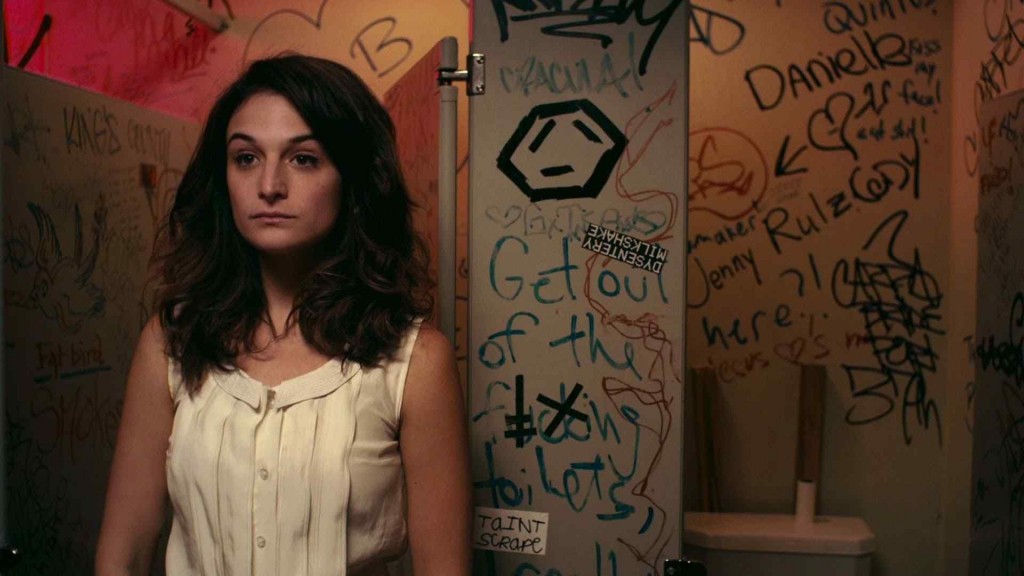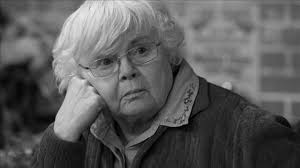Women in comedy are often held to a double standard that’s rarely talked about, even in the tiresome and wrongheaded “Are Women Funny?” debates. A better question might be, “Are women allowed to be funny?” Because while male comedians famously defend their right to make jokes about any topic they want to, women who draw on their own outrage, experience and even their own bodies receive an extra layer of censorship. Elayne Boosler, a comedian popular in the 80s, talked about asking the powers that be why she hadn’t yet gotten her own cable comedy special. The executives told her that featuring her in a special of her own was out of the question, because she touched her breasts during her act. When she watched the specials of other comedians popular at the time, like those of Robin Williams she said, “I realized I had my hands on the wrong thing.”
Later when Sarah Silverman was with Saturday Night Live, she wrote in response to legislation that required abortion waiting periods: “I think it’s a good law. The other day I wanted to go get an abortion. I really wanted an abortion, but then I thought about it and it turned out I was just thirsty.” Even though SNL, then as always, was in dire need of lines that actually make people laugh, she wasn’t allowed to include it. She made it part of her stand-up act instead.
The protagonist of writer-director Gillian Robespierre’s Obvious Child, an aspiring stand-up comedian in Brooklyn named Donna (Saturday Night Live’s Jenny Slate) starts out the film doing a routine that breaks the taboo about women speaking about their own body parts and functions (which leads to a great payoff scene later in the film) as well as making fun of her relationship with her current boyfriend. After she comes offstage, triumphant, her boyfriend informs her he’s dumping her: he and her best friend have been having an affair and want to get together. Instantly Donna is reduced to a pile of tears and insecurity, soothed at home by her level-headed, caring roommate, Nellie (Gaby Hoffmann).

One night, still vulnerable, Donna gets drunk with her gay comedian friend Joey (Gabe Liedman) after she bombs onstage and meets Max (Jake Lacy), a blue-eyed computer nerd, who is dazzled by her. Although the trailer often shows Slate in unflattering hats and poses, we can see why Max is drawn to her: even though she’s still an emotional mess, she looks great (while not at all resembling most kewpie-doll model-actresses) with her long, dark, hair loose, wearing a tight sleeveless t-shirt, and, after she embarrasses herself onstage, has a fun, nothing-left-to-lose affect. He gets drunk with her and they end up having a one-night stand (after raucously stumble-dancing in his apartment to Paul Simon’s title song).
Weeks pass and a casual remark from her roommate causes Donna to think that she might be pregnant. She tells Nellie of her drunken encounter with Max, “I remember seeing a condom. I just don’t know…what exactly it did.” After a pregnancy test confirms her suspicions, she schedules an abortion at a clinic.
Here Obvious Child also veers away from other films, which sometimes mention abortion as an option for unplanned pregnancy, but make sure it’s never something nice girls, like Juno, the Michelle Williams character in Blue Valentine, or the character Katherine Heigl played in Knocked Up ever go through with–even though, in real life, 30 percent of women in the U.S. opt to have an abortion during their reproductive lifetimes. In keeping with that reality, Nellie has had an abortion (when she was much younger) and tells Donna what to expect.

In the middle of this crisis, Max reappears and he and Donna still have a spark between them, but she’s reluctant to go out with him because she doesn’t want to tell him about the abortion–and risk his disapproval. During a wine-fueled dinner Nellie, Joey, and Donna debate what she should do. Nellie offers a spirited defense that the abortion is none of Max’s business, after which Joey tells her he agrees with her but adds, “You’re scaring the dick off me right now.”
As interviews and other reviews have mentioned, no one in Obvious Child is anti-choice, again a nice respite from other movies, but this film, which hews so closely to the romantic comedy formula in most ways (except in its attitude to abortion), could use some tension. Everyone, even Donna’s business professor mother (Thirtysomething’s Polly Draper), who disapproves of Donna’s unremunerated comedy career, supports Donna wholeheartedly in her decision to abort, so the stretching of this film from its origins as a short begins to show. Max, in particular, could use some fleshing out, but instead with his big, clear eyes and irreproachable behavior at every turn he’s more like a fantasy of the perfect man than a character.
Where Obvious Child succeeds is in letting women be funny, not in the faux-humor of humiliation that too many comedic actresses in movies are subjected to these days, but in actual laugh-out-loud funny lines and situations (most of which are woven deeply into the context of the movie, so they don’t make it into the trailer) that reminded me, in spirit if not in content, of Roseanne Barr during her 80s heyday (before her current incarnation as an unfunny, anti-trans crank). Slate is wonderful as Donna (the role she also played in the short) and pulls off a late laugh line about the abortion (yes, there is one) with aplomb. Former child star Hoffmann who radiates no-nonsense kindness and compassion makes us wish more movies featured her. And Lacy, although he isn’t given much to do, is a believable Max and has a nice chemistry with Slate.

My main quibble with this film is one that many of us bring up repeatedly with similar works, but it still doesn’t seem to ever be addressed. In a film that takes place in Brooklyn, the only person of color who has a name is Donna’s Asian American gynecologist. The only Black people we see are, first, a woman with no lines who crosses a street (really) and, second, a comedian onstage who talks about his father being a crack addict. In a film that rights so many wrongs about gender-stereotyping a lot of us would like (and, at this point, expect) a cast that better reflects racial as well as gender (and sexual orientation) diversity especially when that film takes place in Brooklyn. Hoffmann is actually part Latina (her father’s last name was Herrera), but we never get any hint that her character is less than 100 percent white.
Geena Davis recently wrote that screenwriters could automatically achieve gender parity in scripts simply by making half of the characters women, and the writers of Obvious Child (along with Robespierre, Karen Maine, Elisabeth Holm and Anna Bean) could have done something similar with this script to make it less white: Nellie could easily have been made a Latina (instead of just played by a part Latina actress), Joey could have been played by a Black actor (a Black comedian from Brooklyn is not terribly unusual). Hoffmann even could have played the lead with a Latino actor cast as Donna’s father instead of Richard Kind: although in many ways, Slate is the incarnation of Donna, Hoffman and Draper would make a more believable daughter and mother, both physically and temperamentally.
Yes, women should support Obvious Child when it opens in theaters this coming weekend, but as more filmmakers attempt to expand the limits imposed on white women in film and on television, we (critics and audiences) need to continue to put pressure on them to provide roles for others who have traditionally been ignored or stereotyped. White people shouldn’t be the only people we see as fully formed characters onscreen, any more than white men should be.
[youtube_sc url=”http://www.youtube.com/watch?v=cabI_CzXGD4&feature=kp”]
___________________________________________________
Ren Jender is a queer writer-performer/producer putting a film together. Her writing has appeared in The Toast, xoJane and the Feminist Wire. You can follow her on Twitter @renjender.


























